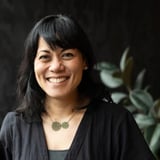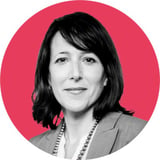Log in or create a free Rosenverse account to watch this video.
Log in Create free account100s of community videos are available to free members. Conference talks are generally available to Gold members.
Summary
Marjorie Stainback I’m planning to talk about how COVID-19 shifted how we conduct research as well as our onboarding experience. We were used to using our in-house lab to speak to in-person participants and while we had the capabilities to go fully remote, we hadn’t built a process around it prior to the pandemic. Once we had that settled, we started hiring which led to an update of our onboarding process. Molly Fargotstein-Sanders Taking a step back at the start of the COVID-19 outbreak, research leadership came together and decided to halt recruitment until we understood the landscape a bit better. Ops took that time to rethink the way we structure our recruitment communications (language, compensation, flexibility) & we worked with researchers to be more flexible with cancellations, no shows, and unwillingness to participate due to the climate (how to navigate deadlines and roadmap expectations). Because of the types of users and customers we have, we took this opportunity to really listen to them & meet them where they are. It really allowed for Ops to take a step back and understand that we can function as the "bleeding heart" of research when the opportunity arises. Stephanie Marsh The quickest decision to be made and supported by the whole organization was not to invite or to do research with scientists and health care professionals that we knew would be working directly on COVID-19. Which meant supporting the pivoting of research to understand new needs both temporary and potentially permanent to our users - Scientists and students. The Research Operations team then worked on recruitment messaging to reassure potential participants that we can be flexible. We have supported and enabled researchers to share lessons learned more widely, such as avoiding afternoon sessions in India because of heavy internet traffic and poor connections. The pandemic prompted us to do emergency planning and identify critical tasks - if all ReOps people weren’t available what would still need to happen, what to do if all research tools were broken etc. We’ve included metrics to track participants' cancellation to quantify impact if any, to understand if perception and reality are the same or different. Longer term we are enabling the wider team to proactively shape the new normal of remote and office working.
Key Insights
-
•
COVID-19 forced research teams to shift rapidly from primarily in-person to fully remote research without pause.
-
•
Updating recruitment scripts to be empathetic and sensitive to participants' changing contexts was critical.
-
•
Transitioning to electronic NDAs accelerated changes that had been previously delayed.
-
•
Remote research expanded participant diversity by overcoming geographic limitations of in-person labs.
-
•
Small research Ops teams must prioritize among multiple operational pillars to avoid burnout.
-
•
Self-service recruitment and research tools empower researchers and scale support.
-
•
Remote work flattened team dynamics, creating a more level playing field internationally and across locations.
-
•
Maintaining team morale requires intentional social activities, like virtual lunches and kudos boards.
-
•
Proactive internal workshops on defining the 'new normal' help teams adapt thoughtfully.
-
•
Prioritizing team health and flexibility enables sustainable cope with unexpected disruptions.
Notable Quotes
"COVID was kind of the mean person to push us into the pool—we had to sink or swim with remote research."
"It was okay to take a step back and pulse the research activity during market volatility."
"Remote research led to greater diversity in participants, which was a pleasant surprise."
"We flipped some onboarding traditions from physical notes to online kudos boards, keeping the welcoming spirit alive."
"In a team of two supporting 35 researchers, we planned a roadmap to focus on a few ops pillars at a time."
"If one person is remote, then everybody should be remote—it creates equality in collaboration."
"We iterated on recruitment messaging about 15 times to get the tone just right during COVID."
"Building an emergency backup process ensured research would continue even if key Ops people were unavailable."
"Prioritization came from engaging all stakeholders cross-functionally through an intake process."
"It’s not about speed or efficiency only—it’s about respect for the research participants."
Or choose a question:
















More Videos

"Trauma lives in the body as pain, tension, or numbness and does not impact everyone the same way."
Rachael Dietkus, LCSWTrauma-Responsive Design: Reimagining the Future of Design Now
December 10, 2021

"Research is not just delivering insights out there in a transactional model, but in a dialogic model."
Robin BeersBeyond Insights: Researchers as Organizational Change Catalysts
March 25, 2024

"Community and self-care kept me going when I felt overworked, stressed, or down during my job search."
Corey LongHiring in DesignOps: A Critical Study on How to Hire and Get Hired
September 23, 2024

"If you have limited resources, start with a simple monadic test using low-cost survey tools."
Michaela MoraAdvanced Concept Testing Approaches To Guide Product Development and Business Decisions
March 11, 2022

"Pilots give you flexibility to mess up and figure out answers as you go, instead of needing all answers upfront."
Michelle ChinThe DesignOps Starter Kit
September 29, 2021

"I was going to use everything that I had experienced, all the skills, all the successes, and become my own superpower."
Renee ReidBecoming a ResearchH.E.R (Highly Enterprise Ready)
June 3, 2019

"There was zero UX experts at the IRS, not even a job description for that role."
Crystal PhilcoxThe Many Faces of Operations
November 6, 2017

"Silicon Valley feels fast, but when the grid goes down, it can be catastrophic."
Gretchen AndersonScaling the Human Center
June 8, 2017

"The longer you take to recognize research ops and scale your team, the harder it becomes to amplify the value of your research investment — Carrie, Booking.com."
Kate TowseyThe State of ResearchOps: More Than Just Theory
June 20, 2019
Latest Books All books
Dig deeper with the Rosenbot
Can you explain a real-world example of students using SVG and AI together to build functional controls?
How can parallelizing activities like hiring and market discovery speed up time-to-market in new country launches?
What strategies can a design team use to scale from impacting a few projects to many more per quarter?


















